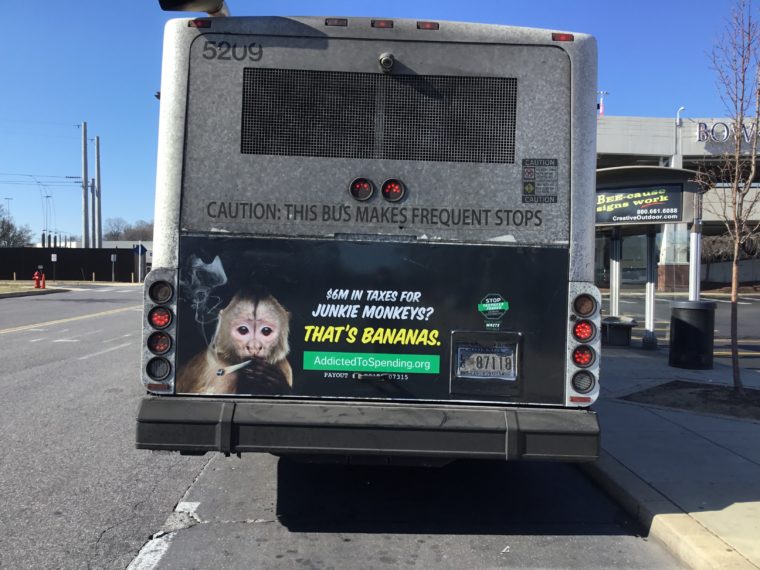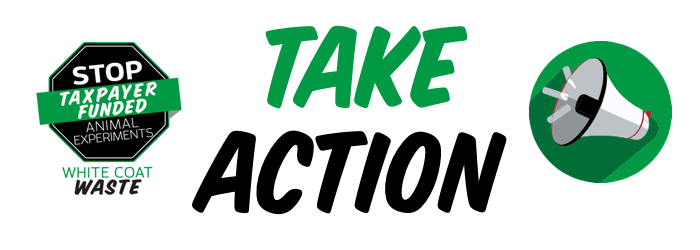VICTORY: Transit agency runs WCW’s NIH “Junkie Monkey” ads
Taxpayers have a right to know how our money is being spent, and people in Maryland will certainly rethink their support for the Bethesda-based National Institutes of Health (NIH) when they see White Coat Waste Project’s (WCW) new ad campaign.

In November 2019, public transit officials in Maryland unlawfully rejected WCW ads exposing how the NIH shipped over $6 million dollars to a foreign university for wasteful experiments in which monkeys are hooked on cocaine, heroin and alcohol. The officials outrageously–and in violation of the First Amendment–claimed that the satirical ads depicting a “junkie monkey” encouraged children to do drugs! After being challenged by WCW’s counsel at the Law Office of Matthew Strugar, the agency agreed to run the ads, which went live on buses in Maryland’s capital city last week.

The NIH isn’t only funding this kind of waste and abuse overseas. A new WCW investigation revealed never-before-seen videos of an NIH lab in Maryland that has wasted over $16 million to damage monkeys’ brains with acid and scare them with toy snakes and spiders.
Is this how you want your money spent? If you are tired of the government wasting tax dollars on pointless and cruel primate experiments, take a moment to tell Congress to cut funding for NIH’s monkey labs!







thank you for your very important work